Religion and the Frontier Challenges
Religion and the Frontier Challenges is a postdoctoral fellowship programme that was established in 2019. The programme is based at Pembroke College, with an affiliation to the Faculty of Theology and Religion, and is part of the University of Oxford.
This is an ambitious and interdisciplinary research programme that brings Theology and Religion into dialogue with other academic disciplines. It seeks to enrich discussion of how contemporary religious traditions and ideas might provide or are providing knowledge and leadership in facing the major challenges currently confronting humanity. Taking its title from the words of a Catholic theologian who called for religion to meet the ‘frontier challenges’ of our time, the programme supports research projects that explore the intellectual and practical responses that any religion might make to these frontier challenges, including:
- The challenges of human knowledge, including contemporary ideologies and epistemologies (e.g. secularism, liberalism, atheism), or changes in forms of access to or dissemination of knowledge (e.g. new communications, media, or digital technologies).
- The challenges of the fight for justice, including struggles against all forms of inequality, discrimination and marginalisation in human societies.
- The challenges of the modern sciences, including the new questions and opportunities raised by advances in technological, medical, biological, environmental and other sciences, and the challenges of sustainability.
Meet the Team
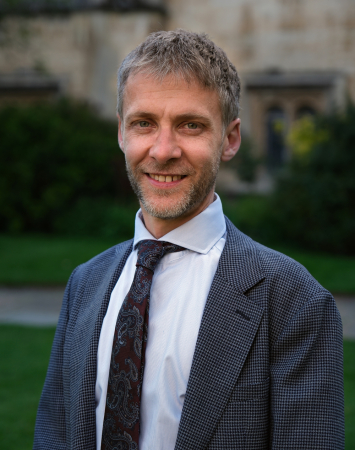
Professor Justin Jones, Project Co-ordinator
Justin is the coordinator of the Religion and the Frontier Challenges Programme. He is Associate Professor in the Study of Religion in the Faculty of Theology and Religion, and is Pembroke College’s tutorial fellow in Theology and Religion. He is a historian by training, and works in the social history of modern Islam, with particular reference to the Indian subcontinent. In recent years, he has been exploring contemporary Islamic family law. Drawing upon law and anthropology as well as history and Islamic studies, he is examining how shariah-based family laws are adjudicated in South Asia, both by courts and by community organisations. He has also worked on Islamic discourses of women’s rights, and has worked with grassroots Muslim women’s rights groups. Separately, he has interests in Muslim laws in comparative minority contexts, including in Britain and Europe. He has published a number of books, journal articles and other publications.
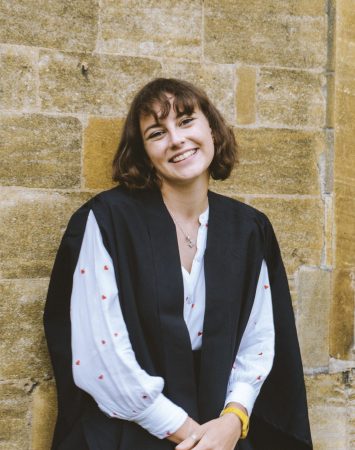
Dr Susie Triffit, Junior Research Fellow
Susie Triffitt is a theologian and anthropologist focused on the productivity of Christian hope in spaces of apparent despair, with a current focus on those in precarious living situations and the homeless. Before joining the programme, Susie completed her BA in Theology and Philosophy at the University of Oxford, before undertaking her MPhil in Social Anthropology at the University of Cambridge. Following her Masters, Susie was awarded the Edward Bailey PhD Studentship at the Divinity Faculty at the University of Cambridge. Her PhD thesis was based on 13-months fieldwork in Bradford, West Yorkshire and explored how hope can work backwards-and-forwards in time and resurrect lost agency in community. Alongside her studies, Susie is the co-founder of the CAT (Cambridge Anthropology-Theology) Network; an online platform fostering dialogue between these disciplines by bringing together over 300 academics from more than 20 countries. Susie is also a BASR (British Association for the Study of Religion) committee member and part of a new John Templeton project titled "Between Relativism and Reproach", examining how anthropologists and theologians can together navigate the extremes of relativism and judgmentalism to support and understand "the good".
In her current project, Susie is ethnographically exploring hope and "home"lessness through fieldwork in Bradford and Oxford. In this, Susie does not limit her study to rough sleepers, but also includes those with precarious living situations struggling to find "home". The current moment presents a critical point: homelessness is increasing across the UK (partially in response to austerity and Covid). This growth is taking place alongside a decline in church giving. As churches try to survive financially following Covid, many will be led to limit their homeless outreach (which is often a financial drain) to sustain their churches into the future. Susie will explore what happens when homeless ministry is secularised and disenchanted, and whether a non-religious provision can offer hope and a resurrection of agency. She will interview individuals running Christian and secular organisations supporting the "home"less. Most importantly through on the ground fieldwork, Susie hopes to walk alongside the "home"less and learn what their theology is and what faith means to this community. In so doing, she endeavours to create a space to hear the voice of those who are often dis-empowered in academia.
The three key questions at the heart of this project are:
1. In a still-secularising society, what is at risk to the "home"less as churches lose funding? Are churches becoming solely welfare organisations?
2. Do faith/secular organisations help or hinder the "home"less?
3. What is the theology of the "home"less? What does Christian hope mean to this community?
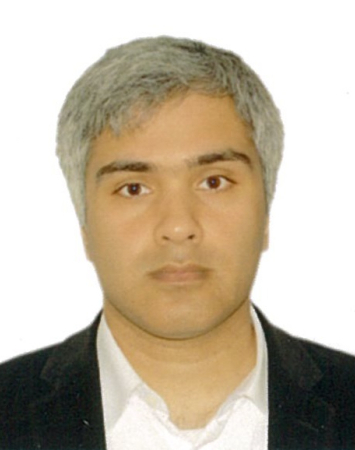
Dr Muhammad Faisal Khalil, Junior Research Fellow
Muhammad Faisal Khalil is an academic and practitioner specialising in theology, the study of religion, history, and social and behavioural change (SBC). His doctoral thesis, “The Ordinary Within Islam: Javēd Aḥmad Ghāmidī and the Representation of Prophethood in the Qurʾān” (2023), examined the significance of the ordinary in Islamic moral life—a theme central to his broader scholarly focus. This work argued that the primordial covenant between God and humanity is the foundation of moral life in Islam, expressed primarily through our everyday actions. Faisal holds an MSc in the History of International Relations, a BSc in Government and History, and a Postgraduate Certificate in Higher Education (PGCertHE), all from the London School of Economics and Political Science (LSE), and a certificate in Leadership in Strategic Communication for Health from Johns Hopkins University’s Bloomberg School of Health. He also studied theoretical physics at Imperial College London.
With over two decades of experience in the international development sector, Faisal is recognised for his expertise in SBC. His senior technical roles in prestigious organisations such as UNICEF, WHO, UNDP, UNFPA, M&C Saatchi, and the Johns Hopkins University Center for Communication Programs, along with his tenure as a senior advisor to Pakistan’s Federal Ministry of Interior, demonstrate his expertise in applying research and change strategies to improve social outcomes. Faisal is also the founder of All-Story, a film innovation studio that uses cinematic strategies to respond to major social challenges. His diverse work spans humanitarian and non-humanitarian contexts, across countries like Egypt, Malawi, the Philippines, Jordan, the UK, Iran, and Pakistan. Faisal has made significant contributions in HIV prevention, COVID-19 risk communication and community engagement (RCCE), flood response and recovery, polio eradication, child protection, family care practices, nutrition, road safety, tobacco control, and policy reform.
In addition to his role as an Associate Member of Oxford’s Faculty of Theology and Religion, Faisal is a Junior Research Fellow in the Religion and Frontier Challenges programme at Pembroke College. He investigates the complex ways in which religious actors, institutions, traditions, and ideas influence the practice of child marriage, with a particular focus on the concept of the child within Islam. In collaboration with UNICEF Pakistan, this project aims to produce high-impact academic publications and develop actionable, religion-based intervention strategies to prevent and mitigate child marriage. The project is also expected to advance our understanding of the potential role of religion in interventions to bring about social and behavioural change. Key features of the research methodology include in-depth interviews with South Asian scholars and the examination of religious texts to discern theological perspectives on child marriage.
This research focus aligns with Faisal’s wider research into the ordinary within Islam. In his parallel research project, “The Ordinary Within Islam: Javēd Aḥmad Ghāmidī and the Covenant of the Child,” he proposes that the child’s inherent vulnerability and dependence makes it the central moral patient in Islam, and therefore, the ‘ordinary par excellence’ within Islam. This argument redefines Islamic piety to emphasise constant moral action and compassion within an imperfect world as the true expression of the covenant between God and humanity.
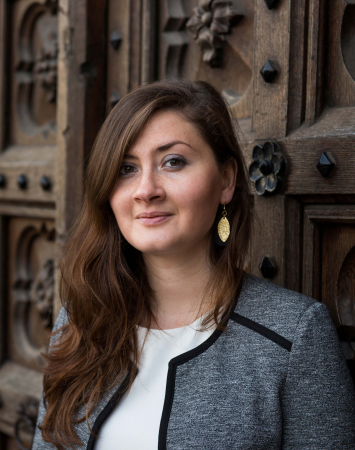
Mari van Emmerik, Junior Research Fellow
Mari van Emmerik is a scholar working at the intersection of religion and science, bridging the fields of religious studies, psychology, and philosophical anthropology. With a background in linguistics and cognitive science, Mari was awarded a Fulbright Scholarship to pursue her MA in Applied Linguistics at Southern Illinois University (2014), where she conducted empirical
research on bilingual cognition and language acquisition. Following a year of studying theology at Wycliffe Hall, Oxford, Mari completed her MSt in Science and Religion (2017) and DPhil in Theology and Religion (2022) at Pembroke College, Oxford, as a Clarendon Scholar, supervised by Professor Alister McGrath. Her doctoral thesis developed a biocultural approach to the study of nonreligious cognition, offering a new framework for understanding how humans develop, maintain, or reject religious beliefs. Following her doctorate, Mari taught Theology and Science at the Faculty of Divinity, University of Cambridge, and has co-led the John Templeton Foundation-funded "Awe-some Spirituality" project, examining the theological and cognitive dimensions of spiritual yearning among the nonreligious.
As a Junior Research Fellow in the Religion and the Frontier Challenges Programme, Mari is exploring how theological perspectives—particularly the Christian doctrine of Incarnation—can engage with contemporary cognitive science to address the challenges of digital justice and epistemological diversity in artificial intelligence. Drawing on insights from embodied cognition, which demonstrates how cognitive processes are rooted in bodily interactions with the environment, she critically engages with traditional computational approaches to AI. The incarnational principle, with its unique insights into the relationship between universality and particularity, materiality and intelligence, offers a framework for more equitable technological development. Her project brings together insights from theology and cognitive science to address fundamental questions about intelligence, technology, and ethics.
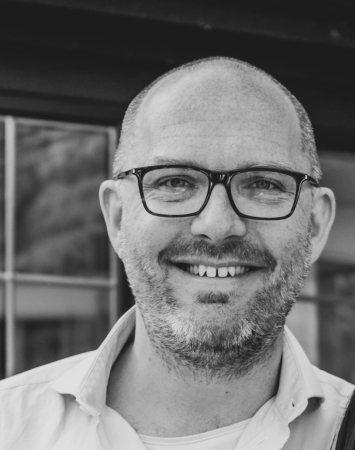
Oliver Wright, Junior Research Fellow
Oliver Wright is a theologian and ordained in the Church of England. After reading English at undergraduate level, he trained and practised as a lawyer for fifteen years in London, specialising in Planning Law. Oliver returned to Oxford in 2019 to study theology, completing the Post-Graduate Diploma (2020), MPhil in Modern Theology (2022), and DPhil (2025). His research interests involve theology, language, philosophy, and literature, and recent peer-review publications include articles on Kierkegaard, Ricoeur, Rowan Williams, Giorgio Agamben, a reading of lex orandi lex credendi using speech act theory, and an intertextual reading of Romans 14-15. His thesis ‘The Performativity of Christian Discourse: a theological theory of language as act’ provided novel readings of J. L. Austin, Émile Benveniste, Jacques Derrida, Paul Ricoeur, Karl Barth, and Nicholas Wolterstorff, before applying that linguistic methodology to a study of theological language and how it does things with words.
Oliver’s interest in language, and in particular performative utterances, lends itself to an analysis of the emerging culture of ‘discourse’ with Large Language Models (LLMs). An increasing amount of human interaction is now online, either with other humans, but more and more with AI. This analysis can be approached from two directions. First, on the available evidence engineers working on LLMs hold simple philosophies of language, or assume roughly a logical positivist position: language describes only, and that description can be captured by tokens. There is something of a surprise, then, when the language of LLMs has real world effects. Second, the study leads to a question of what it is to be human. Using the idea of performative utterances we can say that humans have a far larger capacity to change and effect the world around them, beyond empirical verification. On the other hand, if we interact with machines imagining that they are supplying information only, then our capacity is in turn reduced to replicating that information, as opposed to being shaped and shaping the culture around us.
